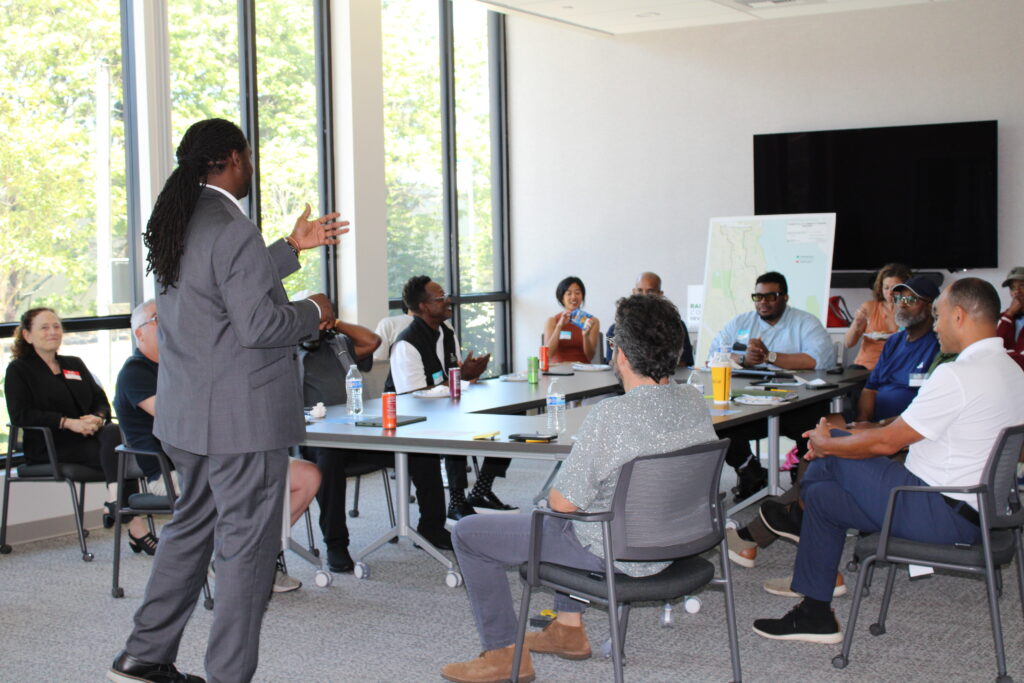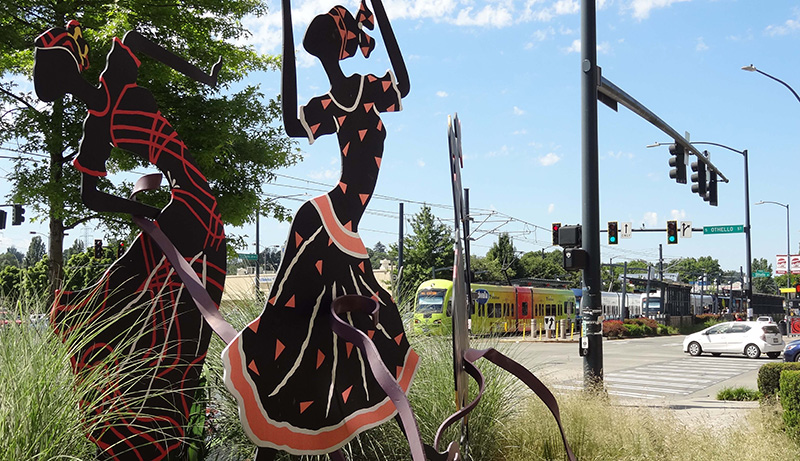Learn About Us

Inside Our Mission
Explore our backgrounders, brochures, and Q&As to learn more about who we are, what we do, and how we serve our community.
FAQ
Find answers to common questions about our work, programs, and community impact.
What is RVCDF’s mission?
RVCDF is a community-focused lender working to expand access to capital and promote economic opportunity. We aim to help local businesses and residents build financial strength and create thriving neighborhoods across King County.
What is a CDFI?
A CDFI is a Community Development Financial Institution that specifically provides financial services to low-to-moderate income communities that are typically overlooked by traditional banking institutions.
How is a CDFI different from a traditional bank?
Unlike traditional banks, CDFIs specialize in lending to businesses typically considered unbankable by traditional lending institutions and are often denied access to capital. One of their biggest strengths is their flexibility in their underwriting criteria. They offer low-interest rate loans, small business loans, operating lines of credit, nonprofit financing, and commercial real estate loans. CDFIs also provide financial education and advisement.
What has the RVCDF done for their local community?
Since its founding, the RVCDF has been a vital force in the Rainier Valley, helping small businesses grow and establishing new businesses through small business loans and technical assistance, and mitigation funding to the community.
We’re dedicated to supporting local businesses that are facing disruption due to projects such as the Link Light Rail construction. Between 2003 and 2009, 181 businesses received mitigation payments from the RVCDF summing to over $15.1 million. Of these 181 businesses, 88% of them remained open despite the construction occurring.
What kind of businesses does the RVCDF tend to support?
The RVCDF makes it their mission to support small businesses that are traditionally overlooked. Southeast Seattle boasts immense cultural variety, and the RVCDF works to support businesses led by people who have not been able to get credit, working to grow generational wealth. In 2023, one in three of the loans the RVCDF allocated went to women-owned businesses, and 80% of the loans went to businesses owned by low-to-moderate income communities.
Does someone have to be considered low-to-medium income in order to qualify for a loan from the RVCDF?
No! The RVCDF works with businesses and organizations of all kinds.
How does the RVCDF receive funding?
The RVCDF receives capital through its self-sustainability funding sources. These funding sources include grants from the city and state, foundations that align with the RVCDF mission, traditional banks, the Opportunity Finance Network (OFN), and other financial institutions. The Fund also welcomes funding from individuals and foundations.
What is the competitive advantage to being a self-sustaining institution?
The competitive advantage of being a self-sustaining institution lies in financial independence and stability. Due to our foundational source of funding, we are able to self-sustain our operations with our internal resources. This makes us less susceptible to political claims and economic factors, allowing us to maintain consistency in our mission, make long-term strategic decisions without external pressures, and build trust with stakeholders who value reliability and autonomy.
What does the RVCDF look at to determine their capacity to repay a loan? How impactful are credit scores?
The RVCDF approaches each new client with the goal of finding ways to make the loan, not how to decline the request. They look at where the business owners are now and where they are going. Credit scores are not the primary factor in determining a loan request. A well vetted business plan is the roadmap to determine the capacity to repay the loan. The RVCDF encourages prospective borrowers to submit an inquiry or contact us directly to discuss their needs.
What types of loans does RVCDF offer?
The RVCDF offers a variety of lending options aimed at small businesses to help them succeed. Loan amount, interest rate and fees vary. We offer Working Capital Lines of Credit, Term Loans, Nonprofit financing and Commercial Real Estate Loans. The RVCDF makes it their priority to meet small businesses where they are at, and support them however they can.
What is the application process for a business that wants to partner with the RVCDF?
What is the process for an organization that is interested in funding/donating to the RVCDF?
We are thrilled to meet with and share information with people who are interested in supporting our work and helping us advance our mission. We encourage them to reach out to the head of our development team, Paul Pitkin at ppitkin@rvcdf.org. You can also call our general number 206-722-5280, and we will work to connect you to Paul or another part of our team who can help you.
The RVCDF is expanding into West Seattle, how are you planning on connecting with/supporting this new community?
Our mission applies to people and communities across King County, and we are eager to be of service wherever the need exists. In West Seattle, as in the Rainier Valley, the RVCDF will continue its work of funding and assisting businesses and organizations that are often not given economic development funding by traditional banks. The RVCDF is exploring opportunities to provide services to residents and businesses in West Seattle and Ballard moving forward. Due to their status as a CDFI, the RVCDF is able to supply loans that other organizations may deem “too risky.” This, in conjunction with their technical assistance and community network, will help support businesses in an expanded footprint of neighborhoods. Further, the RVCDF has provided mitigation funds to small businesses in Rainier Valley impacted by city-led construction and is hopeful to deploy the same strategy in other areas.
How will the new extension of the Sound Transit Light Rail impact West Seattle businesses?
The upcoming construction in West Seattle will bring increased economic development and transportation, but it will also present challenges. Construction will ultimately create congestion, impact foot traffic, and cause disruptions. The West Seattle Line Extension (WSLE) will impact traffic corridors and the businesses who exist there, requiring relocation for some, and impacting the livelihood of others who don’t have to move, but who will be affected nonetheless. The RVCDF is prepared to support these businesses and communities who may face hardship during this time of growth and change.
How has the RVCDF expanded over the years?
Since its founding in 2000, the RVCDF has grown considerably. They made their first loans in 2006, lending $1.1 million in support of affordable housing in Rainier Valley, and became fully self-sustaining by 2014. In 2017, the RVCDF secured its status as a CDFI, allowing them access to greater funds and more wide-ranging investments. In 2023, the RVCDF provided funding to 27 businesses in the Southeast Seattle area. In all the fund has provided over $100 Million in loans to over 200 businesses
What is the RVCDF’s plan for future expansion?
Looking forward, RVCDF is planning on expanding beyond Southeast Seattle, beginning in West Seattle. We are looking to support these new communities and provide their services to any residents and businesses impacted by the upcoming Sound Transit construction. The RVCDF has moved into a new Mount Baker office and will be establishing community hubs- centers where potential clients can receive technical assistance and seek financial advising. Additionally, we will offer targeted loans to overlooked communities, specifically low-to-moderate income borrowers in the West Seattle area. RVCDF will also deploy mitigation funds to support businesses that are affected by the Sound Transit Light Rail construction.
How can you contact the RVCDF?
To reach the RVCDF you can call (206) 722-5280, send a fax at (206) 722-1729, or submit any questions or comments on their website.
Don’t see the answer to your question? Reach out and contact us, we’re here to help.

Submit a Loan Inquiry
If your business or residence is located in southeast Seattle and your company has been in business for at least one year, Rainier Valley Community Development Fund will work with you on your specific financing needs. Take a few minutes to complete a loan inquiry now.